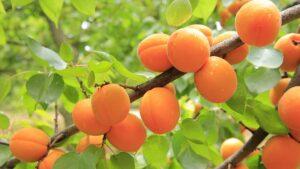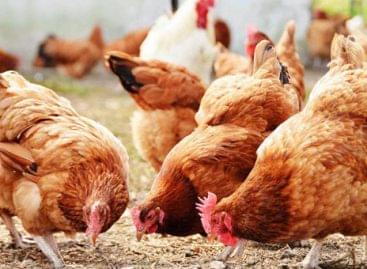Apricot growers expect a long season
This year, apricot harvesting began two weeks earlier than usual on the domestic plantations.Although there is no problem with the quality so far, the quantity was significantly affected by the spring frosts this year as well. According to the overview of the NAK and the Hungarian Fruit and Vegetable Association (FruitVeB), a better than last year’s poor harvest, but less than 2022, can be expected.

(Photo: Pixabay)
The harvesting of the early varieties started earlier than usual, in the second half of May, and thanks to this, everything is in place this year for a long, protracted apricot season. At the same time, the spring frosts did not escape the domestic plantations this year either.
Due to the mild winter and early spring, flowering started earlier than ever before
In South Transdanubia, the early varieties were already in bloom at the end of February, and by the middle of March, apricots were blooming practically throughout the country. However, in the second half of March, the cold weather arrived, which caused serious damage to the plantations located in Transdanubia, in the central and northern and northeastern parts of the country. The onset of cold weather at the end of April further worsened the situation, primarily in the counties of Pest, Bács-Kiskun and Borsod, where gardeners experienced a significant crop loss. According to the joint overview of the National Chamber of Agriculture and the Hungarian Fruit and Vegetable Association, FruitVeB, this year’s crop is better than last year’s very low crop, but less apricots than the 2022 crop can be harvested in the country. The amount of the crop may change depending on the weather in the coming weeks, but according to estimates, a harvest of 16,000 to 18,000 tons of apricots is likely. In Transdanubia, which is better protected from frosts, we see a clearly better crop, while the crop loss is more significant in the central and northern parts of the country. So far, quality problems have not appeared on the plantations, although frostbite and fungal diseases may cause local problems for farmers.
Apricots are grown on about 5,000 hectares in our country
The most important growing areas are concentrated in the counties of Pest and Bács-Kiskun, as well as in the counties of Borsod-Abaúj-Zemplén (1,100 hectares), Somogy and Tolna, but there are also significant plantations in the county of Fejér. At the same time, due to the drastic frost damage that occurred in recent years, the previously started expansion of the production area stopped; Between 2013 and 2020, the area of plantations increased from 4,000 to 5,700 hectares.
Due to severe frost damage that occurs year after year, the annual yield shows a significant deviation
While before 2018, depending on the vintage, the amount harvested was between 20 and 35 thousand tons, in 2023, for example, only 6-8 thousand tons of apricots were produced in the country. According to experts, in order to achieve crop safety, the correct choice of production site, active frost and ice protection and the use of intensive cultivation technology play a key role.
NAK/FruitWeb
Related news
Not a turnaround, but consolidation: an agricultural outlook for 2026
🎧 Hallgasd a cikket: Lejátszás Szünet Folytatás Leállítás Nyelv: Auto…
Read more >The EP accepted the safeguard clauses concerning the Mercosur agreement
🎧 Hallgasd a cikket: Lejátszás Szünet Folytatás Leállítás Nyelv: Auto…
Read more >Related news
Tesco sets out store expansion plans in 2026 including five former Amazon Fresh sites
🎧 Hallgasd a cikket: Lejátszás Szünet Folytatás Leállítás Nyelv: Auto…
Read more >








